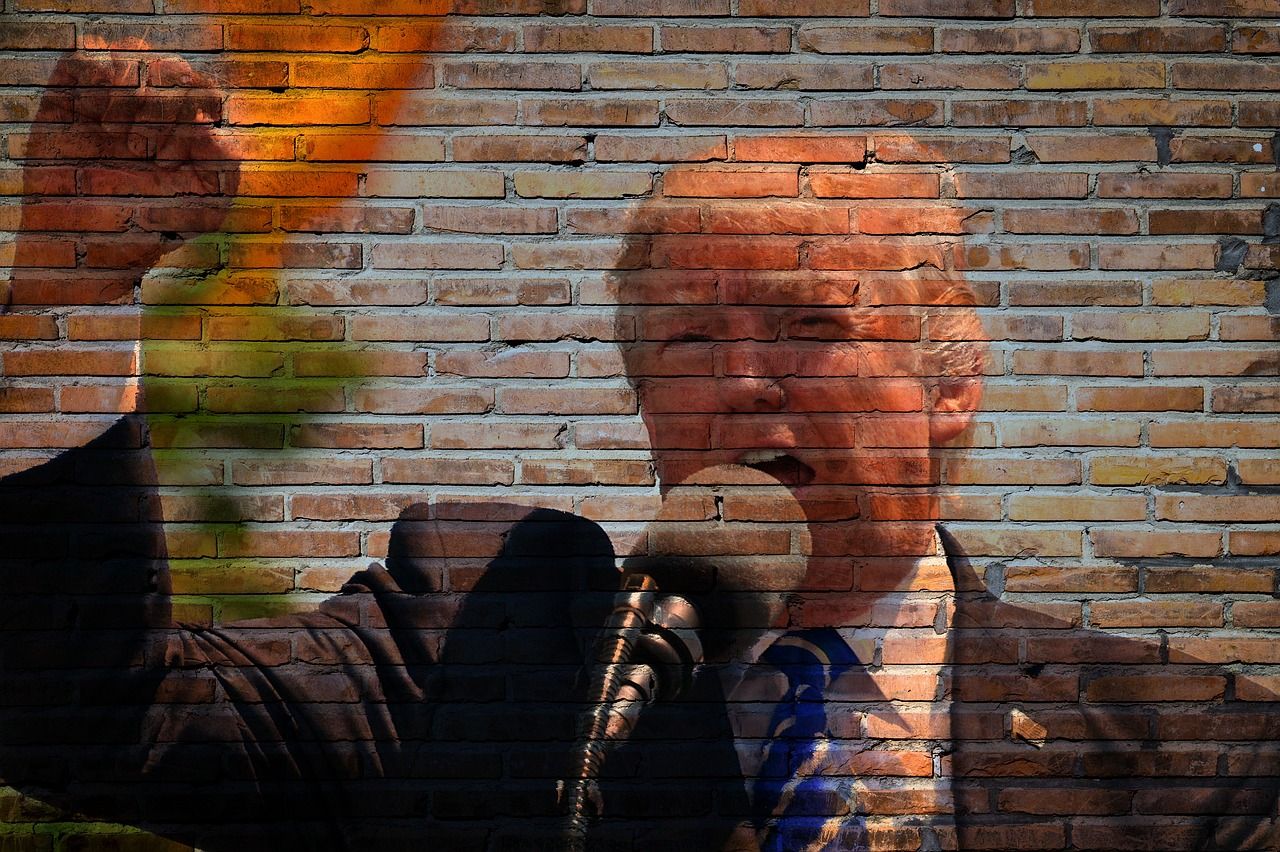Toon Finance V.S. Ethereum and Bitcoin
Experts all over the world are saying that meme coins are taking the world by storm and that they are bringing investors millions of dollars in returns. Did you know that if you would have only bought a dollar of Bitcoin when it came out that you would be a millionaire today? This is crazy to think about but it is true.
Bitcoin is one of the most popular crypto currencies next to Ethereum. These are both two of the leading projects in the space and they are also some of the most trustworthy.
Toon Finance is the new coin that everyone is raving about saying that if you buy some in presale and the coin reaches a dollar in the near future you could be a millionaire. This is the same thing that happened with DOGE SHIB and many other major meme coins in the crypto space.
What is Bitcoin and why is Toon Finance being compared to the OG?
Blog Introduction: Bitcoin is a cryptocurrency and a payment system, first proposed by an anonymous person or group of people under the name Satoshi Nakamoto in 2008. Cryptocurrencies are digital or virtual tokens that use cryptography to secure their transactions and to control the creation of new units. Cryptocurrencies are decentralized, meaning they are not subject to government or financial institution control. Bitcoin is the first and most well-known cryptocurrency.
Bitcoin is different from traditional fiat currencies (such as the US dollar or Euro) because it is not regulated by a central authority. Bitcoin is also different from other cryptocurrencies because it uses a proof-of-work system to verify transactions, rather than a proof-of-stake system. Bitcoin is created through a process called “mining.” Miners solve complex mathematical problems in order to add new blocks of transaction data to the blockchain, which is a public ledger of all Bitcoin transactions. In return for their work, miners are rewarded with newly minted bitcoins.
Bitcoin can be used to purchase goods and services online, or it can be held as an investment. Bitcoin is often lauded for its potential to provide a more efficient and convenient way to make payments, as well as its ability to act as a store of value. However, Bitcoin also has detractors who argue that it is too volatile to be used as a currency, and that its lack of regulation makes it susceptible to fraud and manipulation.
How Does Bitcoin Work?
As mentioned previously, Bitcoin is decentralized, meaning it is not subject to government or financial institution control. So how does it work? Transactions made using Bitcoin are verified by nodes through cryptography and recorded in a public dispersed ledger called a blockchain.
When someone sends bitcoins to another person, the transaction is broadcasted to a network of computers called nodes. The nodes then verify the transaction using cryptography—which involves solving complex mathematical problems—and record it in the blockchain. Miners confirm transactions and add them to the blockchain in blocks. They are rewarded with newly minted bitcoins for their efforts.
Once a transaction is added to the blockchain, it cannot be altered or removed without changing all subsequent blocks in the chain—which would require an incredibly large amount of computing power and would be virtually impossible. This makes Bitcoin transactions secure and transparent.
Bitcoin is a cryptocurrency that was created in 2008 by an anonymous person or group of people under the name Satoshi Nakamoto. Cryptocurrencies are digital or virtual tokens that use cryptography for security and decentralization.
Bitcoin is different from traditional fiat currencies because it uses a proof-of-work system for verification instead of relying on central authorities. It can be used as a currency or held as an investment, but its volatility has caused some concern about its usefulness as a currency. Overall, though, Bitcoin has the potential to provide more efficient and convenient payments than traditional fiat currencies.
Ethereum The Greatest of all time
You’ve probably heard of Bitcoin, the first and most well-known cryptocurrency. But did you know that there are other cryptocurrencies out there? One of the most popular is Ethereum. In this blog post, we’ll explain what Ethereum is and how it works.
Ethereum is a decentralized platform that runs smart contracts: applications that run exactly as programmed without any possibility of fraud or third party interference. Ethereum is used to pay for transaction fees and computational services on the Ethereum network. Ether, the cryptocurrency native to the Ethereum network, is used to pay miners for verifying transactions.
Ethereum was proposed in 2013 by Vitalik Buterin, a Russian-Canadian programmer and co-founder of Bitcoin Magazine. He wanted to create a platform that would be more than just a digital currency and would allow for smart contracts to be built on top of it. Ethereum launched in 2015 with 72 million ETH pre-mined.
Since its launch, Ethereum has become the second largest cryptocurrency by market capitalization after Bitcoin. It has also been adopted by some major organizations including Microsoft, JPMorgan Chase, and Samsung.
If you’re looking to diversify your cryptocurrency portfolio, Ethereum is a great option. It’s the second largest cryptocurrency by market capitalization and has been adopted by some major organizations. We hope this blog post helped you understand a little bit more about what Ethereum is and how it works!
Decentralized Finance: The Future of Investing?
Decentralized finance—often called “DeFi”—refers to the shift from traditional, centralized financial systems to peer-to-peer finance enabled by decentralized technologies built on the Ethereum blockchain. From lending and borrowing platforms to stablecoins and tokenized BTC, the DeFi ecosystem has launched an expansive network of integrated protocols and financial instruments. Now with over $13 billion worth of value locked in Ethereum smart contracts, decentralized finance has emerged as the most active sector in the blockchain space, with a wide range of use cases for individuals, developers, and institutions.
How DeFi is Changing Finance
By deploying immutable smart contracts on the Ethereum blockchain, DeFi applications can offer trustless and permissionless financial services without the need for central intermediaries. This paradigm shift in financial infrastructure presents a number of advantages with regard to risk, trust, and opportunity.
From DAOs to synthetic assets, decentralized finance protocols have unlocked a world of new economic activity and opportunity for users across the globe. By deploying immutable smart contracts on the Ethereum blockchain, DeFi applications can offer trustless and permissionless financial services without the need for central intermediaries. This paradigm shift in financial infrastructure presents a number of advantages with regard to risk, trust, and opportunity.
Risk Reduction through Diversification: Decentralized exchanges (DEXes), synthetic assets, and flash loans are just a few examples of how DeFi protocols are introducing new ways to trade and invest without counterparty risk. By allowing users to trade directly with one another or collateralize positions with multiple assets, DeFi is helping to create a more efficient and resilient market infrastructure.
Increased Trust through Transparency: One of the key advantages of decentralized finance is increased transparency around transaction data and platform governance. On Ethereum, all transactions are publicly visible on the blockchain, providing unprecedented transparency into how these protocols function. In addition, many DeFi protocols have built-in mechanisms for community governance, giving users a direct say in how these applications evolve over time.
Opportunities for Global inclusion and Financial Access: By removing traditional barriers to entry such as geography, creditworthiness, and capital requirements, DeFi protocols are opening up new opportunities for economic participation globally. From lending platforms that allow users to earn interest on their crypto holdings to synthetic assets that give exposure to prices of real-world assets like gold or oil, anyone with an Internet connection can now access a wide range of financial services regardless of their location or economic status.
Decentralized finance protocols have unlocked a world of new economic activity and opportunity for users across the globe. By deploying immutable smart contracts on the Ethereum blockchain, DeFi applications can offer trustless and permissionless financial services without the need for central intermediaries. This paradigm shift in financial infrastructure presents a number of advantages with regard to risk reduction through diversification , increased trust through transparency ,and opportunities for global inclusion and financial access . As DeFi continues to grow and evolve, it has the potential to revolutionize the way we think about money, markets, and economic systems as a whole.
Toon Finance Protocol | Telegram | CoinMarketCap | Toon Finance Coin Presale
Read More: news.google.com









 Bitcoin
Bitcoin  Ethereum
Ethereum  XRP
XRP  Tether
Tether  Solana
Solana  Dogecoin
Dogecoin  USDC
USDC  Cardano
Cardano  Lido Staked Ether
Lido Staked Ether  TRON
TRON  Chainlink
Chainlink  Avalanche
Avalanche  Sui
Sui  Wrapped Bitcoin
Wrapped Bitcoin  Wrapped stETH
Wrapped stETH  Toncoin
Toncoin  Stellar
Stellar  Hedera
Hedera  Shiba Inu
Shiba Inu  Polkadot
Polkadot  WETH
WETH  LEO Token
LEO Token  Litecoin
Litecoin  Bitcoin Cash
Bitcoin Cash  Bitget Token
Bitget Token  Hyperliquid
Hyperliquid  Uniswap
Uniswap  Official Trump
Official Trump  USDS
USDS  Wrapped eETH
Wrapped eETH  Pepe
Pepe  NEAR Protocol
NEAR Protocol  Ethena USDe
Ethena USDe  Aave
Aave  Aptos
Aptos  Internet Computer
Internet Computer  Monero
Monero  WhiteBIT Coin
WhiteBIT Coin  Ondo
Ondo  Ethereum Classic
Ethereum Classic  Cronos
Cronos  POL (ex-MATIC)
POL (ex-MATIC)  Mantle
Mantle  Render
Render  Dai
Dai  MANTRA
MANTRA  Algorand
Algorand